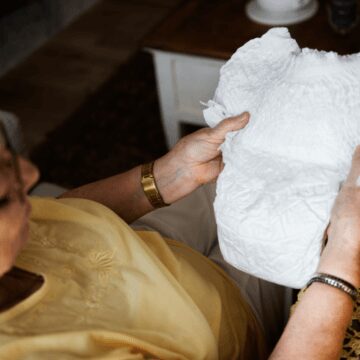
Taking on the role as a caregiver is a huge commitment, it takes strength and courage to always be available. We know that it’s so easy to become overwhelmed with everything that you do. Not only are you performing daily tasks, but you also provide mental and emotional support to your loved one or to the person you are caring for.
We want to help make life easier for you. So here, we have provided you with some tools to assist and support you in your role as a caregiver:
12 Techniques To Add To Your Caregivers Toolkit
1. Research your Patient’s Condition
Educate yourself and learn all that you can about your patient’s condition and how you can provide the best possible care for them. Equip yourself with proper information about their medical history. Take time to chat with friends and family, they can tell you more about your patient’s personality, their likes and dislikes, as well as who they were before their condition. This knowledge is power; it will guide you and inspire confidence. Furthermore, if you know what’s coming it will likely lower your stress levels, and also keep your expectations realistic. Most importantly, when you can show that you are competent the person you are caring for will become more accepting of your help.
2. Ensure Good Medication Management
Your patient may need help keeping track of their medication, and ensuring that prescribed dosages are taken at the right time. You can help lower the risk of medication mix-ups by monitoring and organizing their medications. You could make use of a medication organizer or a daily pill box or even a medication dispenser. Additionally, by routinely throwing away expired and old pill bottles, you can eliminate potential confusion and help improve their medication safety.
3. Make It A Point To Understand Them
Your patient is likely to be different than they were before their condition. They may not have full command of their brain function and capacities such as motor skills, memory and speech. This can easily create frustration, but it is important for you as a caregiver to understand why and how they do certain things.
Understanding your patient is all about observing and listening. Watch their expressions and body language. Do they seem stressed, tired or upset? Then ask yourself what caused this change. It also improves with listening. Pay attention to what they are saying, not only will this encourage increased communication between the two of you, it also allows you to better pick up on any potential warning signs.
4. Assure Them you have Their Best Interest
Don’t discount the importance of showing your patient that you care about their well being and have their best interest at heart. This creates a safe environment for them, allowing them to open up and feel comfortable enough to talk things through with you. You can do this by including them in decisions whenever possible. This may be decisions about their care, medical or even daily choices, like what to wear. Wherever possible try to provide them with situations where they can practice autonomy.
5. Instill Trust and Privacy in the Relationship
When you provide care to your patient, they must trust you completely and you must trust yourself. Have faith in your ability to care for them. It can be daunting, but you must have the courage to do the best you can. And more importantly, seek help and information when you need it.
When it comes to personal boundaries and privacy regarding what can be talked about and what physical assistance can be provided, flexibility and complete honesty are key. Topics such as toileting and bodily functions are a daily issue. The person you are caring for may have trouble bathing or getting on and off the toilet. However, they may probably be too embarrassed to talk about it or ask for help. If so, be the one to start the conversation. Be candid, empathetic and honest. Genuine concern and a matter-of-fact approach will help them feel more comfortable about such private issues.
6. Try to Connect with Your Patient
Connecting with your patient not only allows you to understand them on a deeper level, it also allows you to offer them complete care that takes their emotional needs into consideration as well. You can build this bond with your patient when you acknowledge the importance of their emotional needs as a core aspect of their care. Even though there may be a lot going on during your day, the most important thing when engaging with your patient is to keep your focus on them. This will let them know that you care.
7. You Must Have a Release
Release means finding time to get away and take a break for some kind of reprieve. It could be visiting a place you enjoy, like the mall, a park or a movie. It could be as close as your backyard, but any place that puts you at ease and helps you relax and divert your attention away from the challenges you face, even if the break is short.
It should be something that reenergizes you emotionally. Don’t feel guilty about it, and try not to condemn yourself for needing a break. “Me time” is an absolute necessity.
8. Learn to Develop Perspective
The ability to see things from a different point of view is a wonderful gift. In order to work effectively with your patient, it’s incredibly important that you are able to engage in perspective-taking. You need to understand how they see things to be able to work together, communicate and show empathy and understanding. Some people tend to have a natural disposition for this, while others need to develop it. Whatever the case, it is an important aspect of being a good caregiver. With that said, when you find yourself in those bustling moments, try to take a step up, take a deep breath, and remind yourself there are alternative ways to see and approach the situation.
9. Endeavor to Stay Positive
This is closely related to developing perspective because it’s very important to stay positive with your patient or loved one. Being positive doesn’t mean you need to hide reality from them. It simply means you provide healthy support for them. A statement such as, “I’m with you all the way, whatever you need, and I’m here to help,” can be very comforting and reassuring.
10. Stock Up on Essential Supplies
Running errands or popping into the shop can sometimes almost be impossible for a caregiver. For that reason, it would be beneficial to keep essential supplies stocked up. There are a lot of potential situations to be ready for, and you never want to be caught off guard. Having the right supplies will keep you prepared and avoid sudden panic if you can’t make it to the shop right away.
These are just a few of the bare essentials to keep stocked up on:
- First aid kit
- Hand sanitiser
- Paper towels
- Gloves
- Soap and shampoo
- Disposable wipes
- Adult nappies
- Saline spray
- Creams and lotions
- Anti-itch and anti-fungal powders
11. Have a Good Support System for Yourself
Taking on all of the responsibilities of caregiving without a support system is a recipe for caregiver burnout. Don’t try to do it all alone. Be upfront about how you are feeling and how the person that you’re caring for is doing. Don’t be shy about accepting help, allow people to support you.
Also, consider joining a caregiver support group. This is a great way to share your troubles and find people who are going through similar experiences each day. You’ll feel better knowing that other people are in the same situation, but most importantly, you’ll find out that you’re not alone! Remember to be a great caregiver you need to be supported by a great team.
12. Take Care of Your Own Health
Think of your body as a car. With the right fuel and proper maintenance, it will run reliably and well. Neglect its upkeep and it will start to give you trouble. Don’t add to the stress of your caregiving situation with avoidable health woes.
- Keep on top of your doctor visits – Don’t skip check-ups or medical appointments. You need to be healthy in order to take good care of your patient.
- Exercise – Regular exercise will boost your energy levels and help fight fatigue.
- Eat well – Nourish your body with good foods, like fresh fruit, vegetables, lean protein, and healthy fats, these foods will fuel you with steady energy.
- Get enough sleep – Cutting back on sleep is counterproductive. When you get less, your mood, energy, productivity, and ability to handle stress will suffer.
Have you Packed your Caregiver Toolkit Yet?
We do hope that these tools will help support you in your role as a caregiver. Remember this role that you have taken on cannot and should not be done alone. Make use of your support system, ask for help, but most importantly give yourself grace, you cannot pour from an empty cup. Taking care of yourself will allow you to be a better and more effective caregiver to your patient or loved one.
Our Adult Range have great solutions to assist with Incontinence. Buy Adult Nappies from only R70 per pack or purchase Adult pull-ups from only R75 per pack if you prefer. We also stock a range of wet wipes and tissues and Bendliners and Linen Savers for your convinence.
Recommended Articles:
To help you on your journey, we recommend the following articles relating to assisted living or adult incontinence:
- The Psychological Impact of Incontinence
- The Ultimate Guide to Adult Nappy Care
- Top 10 FAQs About Buying & Using Adult Nappies
- Living with Incontinence: How To Get Your Confidence Back
- Helpful Ways to Manage Urinary Incontinence







